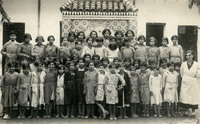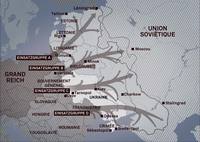Alejandro Baer, CHGS will participate in the United States Holocaust Memorial Museum's Symposium,
Sephardic Jewry and the Holocaust: The Future of the FieldApril 28-30, 2013
University of Washington, Seattle

The symposium is part of the year long commemoration of the 20th anniversary of the opening of the Museum. Co-organized through the Sephardic Studies Initiative of the University of Washington's Samuel & Althea Stroum Jewish Studies Program and the Museum's Center for Advanced Holocaust Studies, this symposium explores the unique history of Sephardic Jewry and the Holocaust.
Professor Baer will present The Voids of the Sephard: the Memory of the Holocaust in Spain.
Abstract of Dr. Baer's Paper:
The Holocaust did not take place within Spain's borders. Isolated and detached from the tragedy that consumed the rest of the European continent, Spain at that time was essentially submerged in the trauma of her own Civil War and its aftermath. When Spain finally emerged from the grip of Franco's dictatorship, the country's democracy was rebuilt on the margins of the prevailing European value system, in which the memory of Auschwitz and its ilk occupy a central place. It is only in the last decade, as a consequence of both institutional initiatives and the effects of cultural and educational transnationalization, that Spain has been progressively absorbed into the wider European debate about history, culture, and memory. As a result, discussions about the Holocaust have gained a more significant presence in Spanish public life. The process is an arduous one because it requires Spain to liberate itself from the shackles of its own past, specifically from the mantle of ignorance and prejudice that, until very recently, has covered everything related to Jews.
More information on the symposium can be found by clicking
here.

